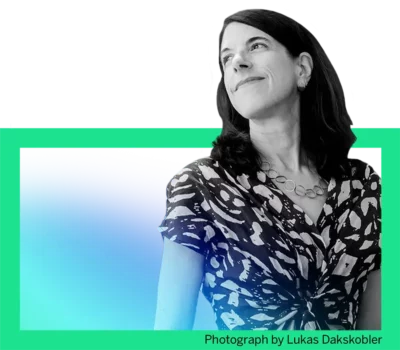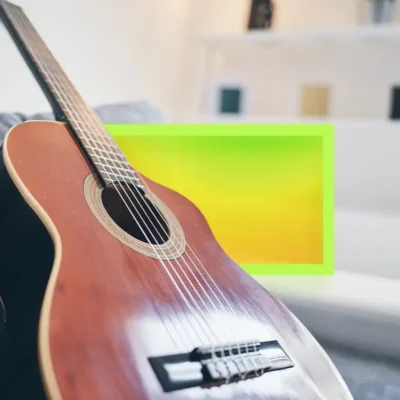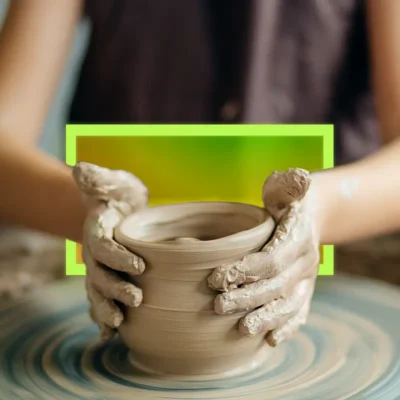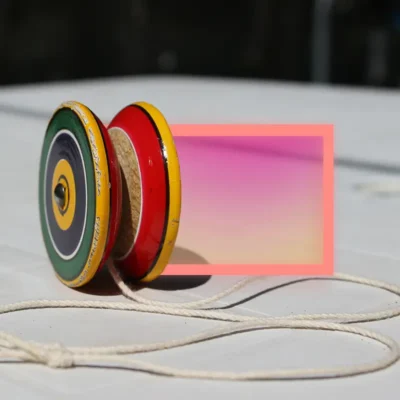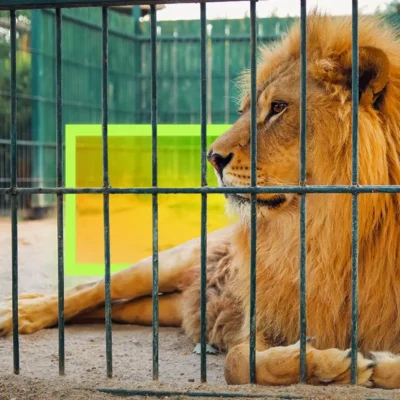To chase the sunset
Writer Florence Williams, grieving the loss of a long marriage, finds herself in Tulsa, Oklahoma; she’s come to sit with Penny, her former mother-in-law, who is dying of cancer. Drawn together by the gravity of needing and being needed, the two women sit in the quiet house, in a space between life and death, between rootedness and uncertainty – and yet surrounded, always, by love. As Penny begins to withdraw from the world, she has one final question for Florence, and one final piece of advice. Photo credit: Lukas Dakskobler.

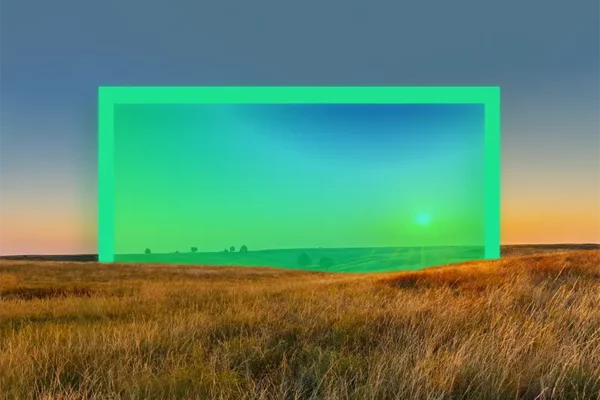
Table of Contents:
Transcript:
To chase the sunset
FLORENCE WILLIAMS: Everything in Oklahoma is wide and flat, including the streets around Penny’s retirement community. I’m drawn to a field bounded by Joe Creek, which flows into the river a few blocks away. I can hear birds and crickets. I breathe into the pale sky.
One afternoon, I forget the key card to let me back in through the development’s gate. I wonder if I can squeeze through the wrought-iron posts on one side. I can. It makes me feel insubstantial. Like I am barely here.
I’ve lost my center of gravity. For so long, I was grounded by the pull of two people in a marriage. On my own, I don’t feel like there’s enough of me to keep me from floating into space.
ROHAN GUNATILLAKE: Florence Williams is a sensational writer. Her award-winning books, including most recently, Heartbreak, explore the hidden connections between our health and resilience, and the natural world.
Today’s Meditative Story is one of the most arresting in our series to date. It’s not necessarily an easy story, but it’s so very human, and for me, makes me reflect on what a difference human connection can make when we’re experiencing loneliness.
In this series, we combine immersive first-person stories and breathtaking music with the science-backed benefits of mindfulness practice. From WaitWhat and Thrive Global, this is a Meditative Story. I’m Rohan, and I’ll be your guide.
The body relaxed. The body breathing. Your senses open. Your mind open. Meeting the world.
WILLIAMS: It is a gorgeous spring day when I land in Tulsa, Oklahoma. From the cab, I can see that flowers are pushing through the rich prairie loam, and the Arkansas River is surging.
I leave the brightness of the road and enter the suburban ranch house where my husband’s mother is actively dying. After several years of battling cancer, her organs are now failing. She’s mostly stopped eating. It’s quiet inside; the Persian carpets and textiles muffle the low hum of an oxygen machine.
I put my bag in the guest room and find Penny in her big quilt-covered bed. She looks much smaller than I’ve ever seen her. Even her lush, high-volume hair has deflated. But she smiles when she sees me.
“It’s my Daughter Number One,” she says in her southern lilt. That’s what she calls me, and I like it. She has three sons, and my husband was the first of them to marry. She invites me onto the bed, and I give her a gentle sideways hug. I can see she’s uncomfortable.
“How long does it take to die?” she asks, more curious than afraid.
I think about how to respond, but I don’t know the answer to her question.
Her bedroom smells like the daylilies someone has sent. As always, it is filled with books, plants, and paintings. I see memoirs, calendars, books about art and Oklahoma history, stacks of poetry: T.S. Eliot, Mary Oliver. There are sticky notes everywhere. She doesn’t want to miss anything. Even at the end, writing a note is an act of optimism: someday soon, I will finish the thought.
The hospice nurse, Laura, looks glad to see me. She reminds me how to change the oxygen tanks and which pills to give when. Penny has fallen asleep.
“She is drifting in and out of consciousness,” whispers Laura. “To perform the spiritual and physical labor of dying, one must begin withdrawing from the world.”
I’ve witnessed this hard work once before, when my own mother was dying 20 years ago. Now I am losing another mother, at a time when I really need all the mothers I can get. I’m here to say goodbye and also to tell her I will be fine, because I know she is worried about me. But I’m not at all sure I will be fine. My long marriage to Penny’s son has recently ended, at his request. I don’t know how to be alone in the world. I’m scared, anxious, and I’m losing weight I don’t want to lose. Penny and I are both slivers of our former selves. If we can be slivers together, maybe we can somehow become more whole.
When she sleeps, I walk around the neighborhood. Everything in Oklahoma is wide and flat, including the streets around Penny’s retirement community. I’m drawn to a field bounded by Joe Creek, which flows into the river a few blocks away. I can hear birds and crickets. I breathe into the pale sky. One afternoon, I forget the key card to let me back in through the development’s gate. I wonder if I can squeeze through the wrought-iron posts on one side. I can. It makes me feel insubstantial, like I am barely here.
I’ve lost my center of gravity. For so long, I was grounded by the pull of two people in a marriage. On my own, I don’t feel like there’s enough of me to keep me from floating into space.
Thanksgiving, five months earlier: I help our two teenagers pack for the holiday. We scour the closets for suitcases with working zippers. “Found one!”
They’ll be driving with their dad to his father’s farm, where they always go, only this time I won’t be with them. And the thought makes my stomach hurt.
“Bike helmets? Check. Reading materials, raincoats, mud boots? Check.”
I know exactly what the mud on this farm is like, how it sucks up car tires and small feet. I know all the activities: looking for snakes in the swamp, riding tractors. Dressing for the big meal, eating piles of carbohydrates, and then posing for the yearly extended-family portrait, sitting knee to knee, stocking to stocking, generation to generation, on the brick porch steps. There’s a performative and predictable yet comforting quality to it. Just like a long marriage.
“Come have Thanksgiving with me,” Penny offers during a phone call, a month earlier.
She’s been divorced for decades. She used to spend Thanksgivings at the same family farm. Her children, like mine, are still there, and will be, year after year. That ancestral patch of swamp and meadows is a powerful magnet.
Thanksgiving with Penny? I think: Perfect.
I fly in, and we join a few friends of hers at a downtown lunch club. I park Penny and her portable oxygen tank and her walker at one end of the table. The place is trying to be festive, like us. White restaurant linens, water glasses, wine glasses. She looks like her old self, buoyant white hair, a swipe of plum lipstick. She raises a loving glass to her friend and asks caring questions of her friend’s shy granddaughter. The teenager brightens under Penny’s gaze.
Later, Penny winks at me and leans over. She knows exactly what I’m missing today. “I’m so glad you’re here,” she chuckles. “We can be exiles together.”
We recover from the big meal sprawled on her king bed. The lipstick has come off. We recline against the bright red pillows, and she dozes. We have a project for the weekend. She wants to tell me her stories and secrets. I will record them. I am the family documentarian.
Her energy kicks in around 9 PM. She’s always been a night owl. I supply her with a large glass of apple juice. And then I press the round red button on my digital recorder.
“We believed we were building a state,” she says, launching into stories of her early days in the Oklahoma legislature.
“If you wanted to get something done and really done, you’d give your bill to someone who agreed with you,” she says into the mic, running a hand through her thick curls.
My mind wanders. Where on earth will I be next Thanksgiving? We both know this will likely be her last. Will I ever find love again? Will I be okay if I don’t?
She clears her throat and continues. Her rich deep voice takes on the charm of a storyteller. “So I finally learned just working through other people and getting them all the credit was enough for me.” In politics, as in life, she knew she could sometimes best fight for her causes by being coy, stepping back. It’s a skill-set she learned growing up female in the South.
But I grew up in New York. I’m rarely coy.
I blurt out, “Did you ever feel lonely after your divorce?”
She says, “I had friends and big ideas.” I digest that.
“Did you have to learn how to find comfort and happiness on your own?”
She looks at me, her lips pursed in thought and understanding.
“I eased into it. It’ll take a while. Holidays are hard.”
She says, “Sometimes I still get choked up thinking about my ex-husband. I guess I always will, and you will feel this way, too.”
But she tells me she also loves having her own space and spontaneously jumping in her car to drive across the prairie to visit children or friends. Penny is a chaser of sunsets and horizons. Sometimes while she drives, she holds a disposable camera with one hand to snap pictures of captivating clouds out her window. Beauty, to her, is a powerful antidote to loneliness.
Even from her bed, I see this captured beauty all around. I see it in the potted plants budding outside her window. I see it in the perfect circles of lemon she drops in our water glasses, in the paintings and textured rugs all around us.
Her bed, with the two of us in it, feels like a life raft. It’s not the first time.
GUNATILLAKE: A raft floating, no anchor, just floating. Enjoy this image, and give your mind permission to just go where it goes.
WILLIAMS: With my own mother gone, it’s Penny who arrives at our house when I am giving birth to each of my children. She swoops in for those early weeks with hand-crocheted baby blankets and miraculously soft burp cloths in pretty pastel colors. She sets up shop in my kitchen where she cooks roasts and soups. Celery is everywhere on the countertops. She tends the plants in the garden, and somehow even gentles the cat.
We grow comfortable with each other’s habits and moods. I tolerate the expired food she leaves in my fridge. Breastfeeding is hard for me, but I’m determined. In those early days, I can’t even wear a shirt. I roam the house like a dazed, crazy naked person. I flap my hands in front of me to create some sort of relief. She has never seen anything like this.
“Well!” is all she says. But she understands.
“We can really be ourselves with each other,” we both say – as we collapse exhausted on the couch in our dusty socks.
Penny has changed so much since Thanksgiving. She no longer sashays about the house in her long cardigans. She barely speaks.
In the afternoon, she agrees to eat some shepherd pie and canned fruit. I’ve unfolded a TV table. I help her rotate her knees around to the edge of the bed, and then hold her sharp elbows to stand. I support her weight as she eases into the chair.
I count out pills and place them in pretty saucers so they’ll look better. We know it’s just theater. She won’t take them. She wants me to feel needed, but it is I who need her, and we both know it. She has told her boys that she feels everyone will be okay without her. The only person she is worried about is me.
She likes the melon cubes, or pretends to, and she is concentrating hard to will them into her mouth.
Putting down her spoon, she suddenly looks up and speaks. “So how is your love life?”
I laugh. Of all our near-final conversations, I am not expecting this. My mind quickly flashes to some comically bad dates.
“Not terrible!” I say. She probes my face. “It’s kind of interesting and fun!” Then I nod and add, “I’m going to be okay, Penny.”
She nods back. Perhaps I have convinced her.
GUNATILLAKE: Maybe you know how it feels to reassure someone you love when inside you’re not at all sure yourself. When it’s like that, it’s worth remembering that sometimes we just don’t know. And it’s OK. We can be OK with that.
WILLIAMS: I’m still afraid of so much. One of the things I fear most is aging alone, being ill alone, dying alone. But when I see Penny’s frail body in that chair, I see she is prepared to unveil this for me as she has unveiled so much.
“You’ll find a fabulous man,” she replies. “Maybe a hillbilly.”
And we both laugh as I clear the tray.
“It’s important to have a great love,” she murmurs to me later in the evening.
And that is her final advice to me. I know she doesn’t mean the hillbilly, although that is part of it. But love is bigger than marriage and bigger than romance. The love that wards off loneliness is not the love you receive, but the love you give. Even in her weakened state, Penny is connected by filaments of love to something larger. Filaments fortified by decades of recklessly overflowing pots of oxtail soup.
Penny’s love is so big it fills that whole room and that whole house and that whole creekside in Tulsa, Oklahoma.
Home has always been where the people I love are. But over these months, Penny has been showing me another definition of home. It’s about finding my own gravity. “Know your center,” she has said to me more than once. “And be from it. That’s who you are. Come back to it when you feel troubled or in doubt.”
Her final gift to me is to preside over my hour of need. My final gift to her is to let her, and then to let her go.
Dying is hard work. I don’t want to make it harder. She needs to know it is okay to withdraw.
I bring new flowers into her room and arrange them in small vases surrounding her.
Soon her sons fly in. A few days later, she is gone.
In teaching me how to die, she is showing me how to live. Bravely, with concern for others. With beauty. With love.
And with that, I finally hear her message: I am going to be okay.
PENNY: Know your center, the center of your being, and be from it. Be able to come back to it in the quietest of times. So when you do feel troubled or in doubt, you have a home to go to … and it’s right there inside yourself.
Rohan’s closing meditation
GUNATILLAKE: And those are Penny’s actual words we hear at the end of the story. Thank you, Florence and Penny, I’m really very touched. I think everyone listening feels the same. In just a moment, I’ll guide you through a closing mediation inspired by what we’ve just heard.
I think I love Penny more than anyone else we’ve met in our adventures with Meditative Story.
With that image in mind, the only practice we can do together is what is traditionally known as a loving kindness meditation, which we’ve not done for a while.
The idea at the heart of this meditation is that kindness can be trained. Just like concentration or awareness, kindness is a natural quality of heart that we all have to some degree – and with the right techniques and the right environment, it can be cultivated and grown.
And the way it works is that we bring different people to mind and to send them kind thoughts. In the traditional formula, the order you run through is yourself, someone close to you, someone relatively neutral to you and then finally someone you have difficulty with.
But in our version today we’ll switch it up a bit and do it in three parts, and where else to start but with our Penny.
Setting down. And letting the belly be soft. Relaxing the jaw, relaxing the hands. Relaxing the shoulders, relaxing around the eyes. Just settling into how experience is presenting itself right now.
Thoughts. Sensations. Tightness. Relaxation.
Just allowing whatever is here and giving yourself the luxury of not having to get involved.
Noticing any way in which you experience safety and protection in this moment, and deepening into that sense of being safe and protected.
With nothing else to do right now than what you are doing. Which is this loving kindness meditation.
Like I said it comes in three parts, and who knows, it might be really fun. And to do it we use our thoughts and our imagination to encourage kindness. So let’s smile, sit back, give it a go, and see what happens.
First up we’re going to bring to mind someone very dear to us, our Penny. It doesn’t matter who it is, as long as it’s someone you know well and have a great deal of affection for. It can be a partner, a parent, a child, a friend, or someone in your family.
As long as you find it easy to feel kindness for them. And the first person you thought of is probably the right choice. So bring this wonderful person to mind, and if you’d like to smile a little, that’s more than allowed. Keeping your special person in mind, we’ll say a couple phrases.
May you be well. May you be happy. Saying the words internally, meaningfully.
May you be well. May you be happy. Whether they are near or far away. With us or not.
Keeping your wonderful person in mind, enjoying their radiance as they inhabit your thoughts.
May you be well. May you be happy.
Saying the phrases at your own pace, at a rhythm that feels best for you. Wishing your Penny well, sending them kindness. Letting the love and appreciation fly out from your chest.
May you be well. May you be happy.
Relaxing the body, repeating the phrases. Connecting with the phrases if they feel OK.
Penny’s love is so big it fills that whole room and that whole room and that whole creekside. So for Act 2 let’s open out, allowing your kindness to move through your Penny and to the space around you.
The room. And whoever is here with you. The building where you are. The town. Your kind thoughts radiating. Uncontainable. Flowing out in all directions from where you are.
Allowing yourself to smile, and keeping all the space around you in mind. And all the people within that large space.
May you be well. May you be happy.
For young, and for old.
May you be well. May you be happy.
The near and the far away. The energetic, and the tired.
May you be well. May you be happy.
Those coming into life. Those withdrawing from it. Those left behind.
May you be well. May you be happy.
Anchored in the body. Radiating kindness to all directions. Your heart, the center of a sphere of whatever size makes sense to you. For those who feel alone. For those who right now have lost their gravity.
May you be well. May you be happy.
And for our closing act. Recognizing that we are part of that sphere. Included. Not separate.
May I be well. May I be happy. May we be well. May we be happy. May I be Penny. And Penny, me.
For chasers of sunsets and horizons. For seekers of beauty. For people who know the simple luxury of a slice of lemon in a glass of water
May we be well. May we be happy. May we be Penny. May we be Florence. May we be ourselves.
Ok let’s stop there.
Thank you.

